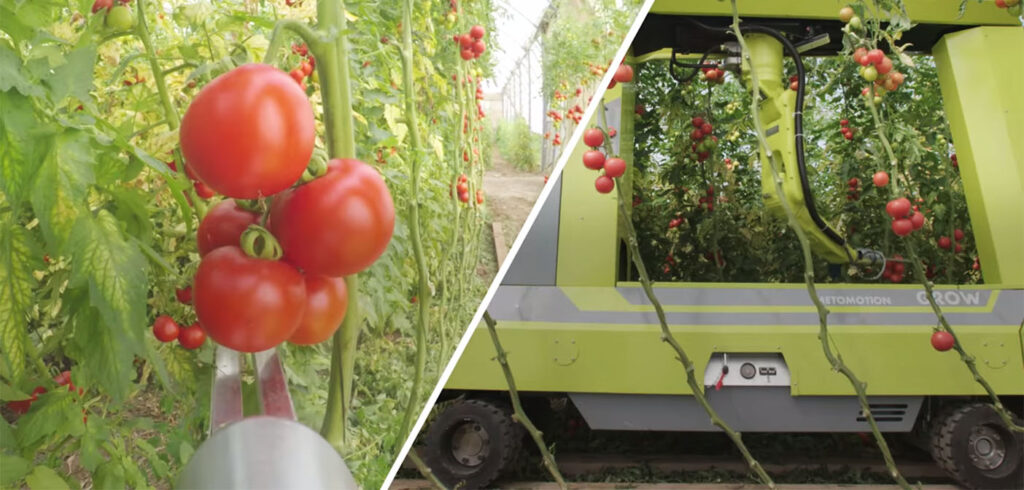Think of a world with nine billion people fifty years from now. We’ll need enough high-quality fresh produce and grain to feed everybody. In turn, we’ll need three times as many greenhouse growers and farm laborers as we have today.
Unfortunately, reports show fewer and fewer farmers retain their lands and greenhouses each year as conditions get harder; costs of labor, material and production get more expensive; and larger farms dominate input and output. For hired laborers, in most parts of the world they receive minimum wage and in Western countries a willing source is becoming harder to find. Indeed in the UK, Brexit limbo has caused a huge shortfall in available East European pickers resulting in crops going to waste.
For farmers, this is where projects like GRoW (Greenhouse Robotic Worker), a developing autonomous tomato picker, designed by Amos Boaz of Israeli company MetoMotion could come into the picture.
Their mobile multipurpose robotic system uses its robotic arms – to pluck tomatoes from greenhouses, farms and fields, roll them on its conveyor belt and gently stack them for boxing. Or that’s the plan anyway, with an investment round of $1.5 million received in July (from partners in the Netherlands) and additional funding from the EU, the folks at MetoMotion are hard at work. MetoMotion are hoping their new machine will also adapt to harvest cucumbers, onions, peppers, cherries and apples among other produce.
Furthermore it is planned that GRoW will perform other labor-intensive greenhouse tasks such as pruning, pollination, de-leafing and data collection for cultivation analysis.
Equipped with 3D cameras, six robotic arms, a conveyor system, a boxing apparatus, and a harvest end-effector, GRoW slips into the greenhouse-producing ecosystem with a minimum of fuss. The machine works overtime, is a terrific team-worker, overlooks a salary, benefits, and overtime pay; can take – almost – any sort of abuse, and represents no legal risks to its owners.
Tests show that five of these robotic harvesters produce the work of ten human workers and save greenhouse farmers up to 50% in harvest-related costs.
MetoMotion CEO Adi Nir believes they can “bring our first product to the market and offer farmers a valuable solution to one of the most urgent issues they face in vegetable production today.”



